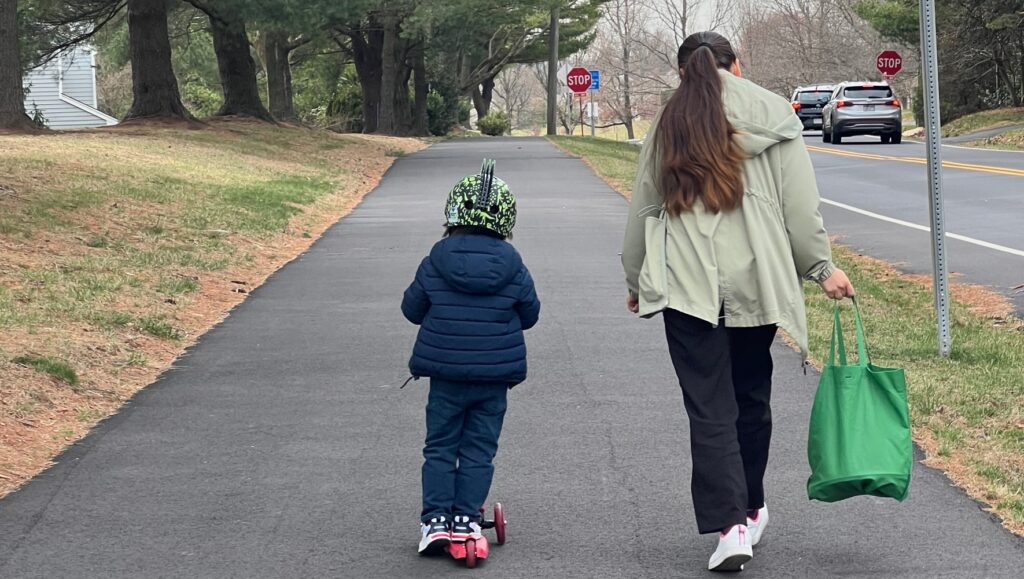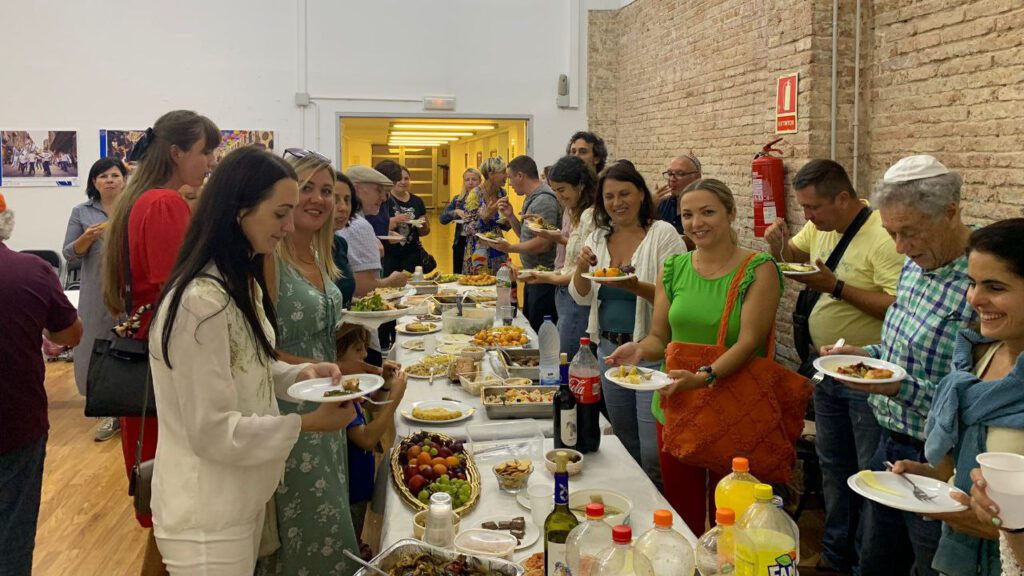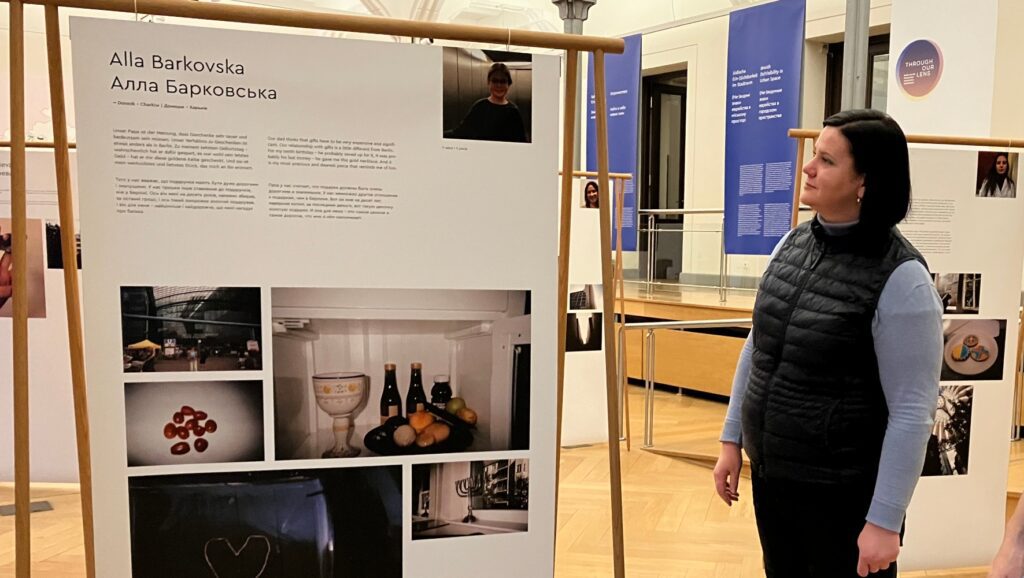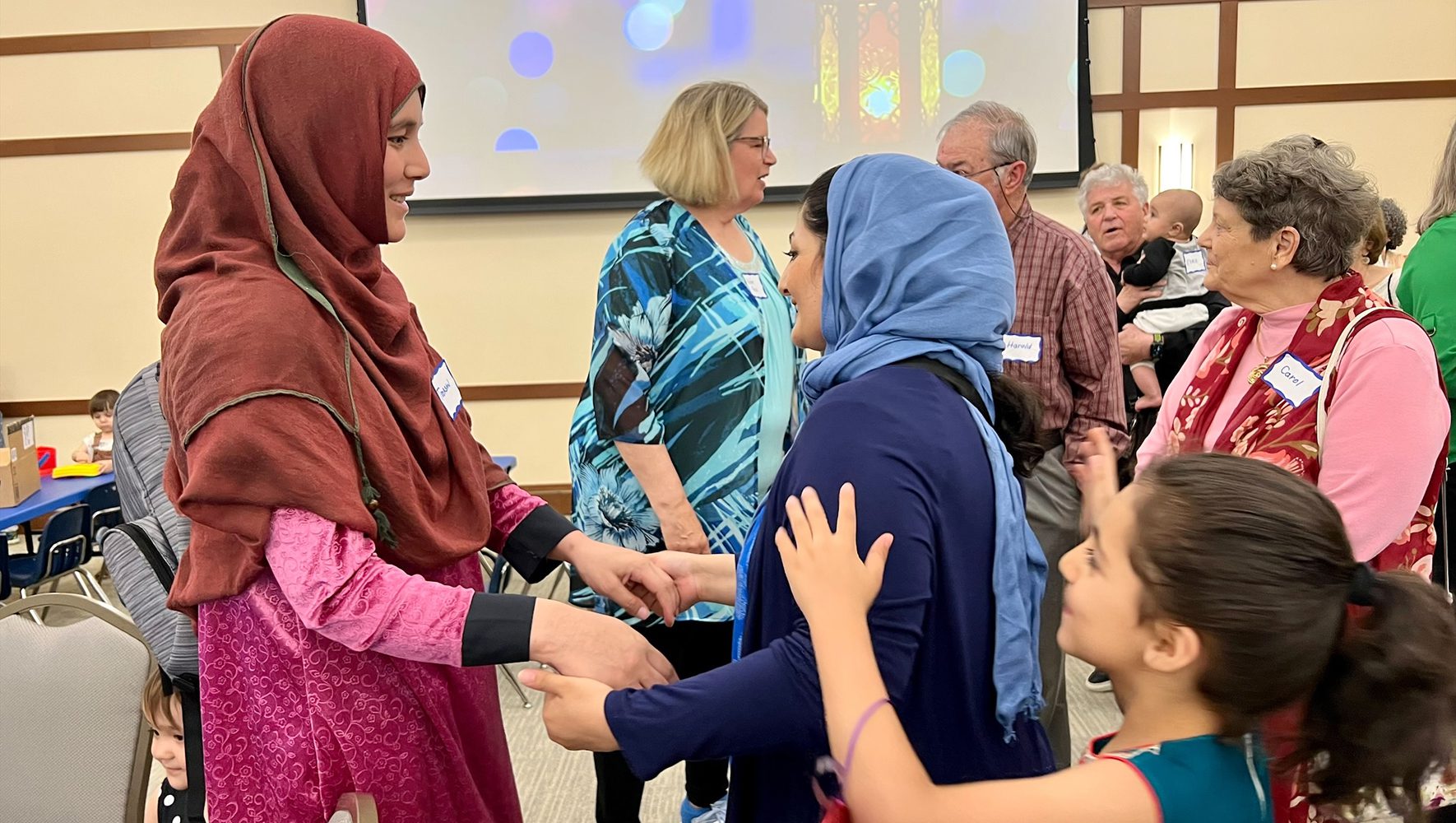
When Anisa* and her family arrived in St. Louis in February after fleeing Afghanistan, she was nervous and unsure what to expect. Now, she says that living in her new home is “like magic,” with volunteers from a local interfaith group providing for the family’s needs – including, for the past month, supporting their observance of Ramadan.
Since January, HIAS’ 34 Welcome Circles across 10 states have welcomed 30 Afghan families into their communities. Through Welcome Circles, groups of private citizens adopt responsibilities traditionally administered by resettlement professionals for their new neighbors. That means helping, among other things, with schools, with housing, and with jobs.
The Intertwine Interfaith Welcome Circle has been supporting Anisa and her family, who fast from sunrise to sunset during the Muslim holy month of Ramadan, by providing food and rides to a local mosque throughout their observance. They also organized a communal Iftar – a meal eaten during Ramadan to break the day’s fast after sundown. Held April 23, the Iftar dinner was the first large in-person event that Intertwine Interfaith had arranged since COVID-19 began.
“This year, I think that it’s even more meaningful, because we all have learned a lot more about Ramadan from working with the family,” said Debbie Bram, Congregation Shaare Emeth’s director of Jewish life and learning and a member of the Welcome Circle.
Intertwine Interfaith, a coalition of Congregation Shaare Emeth, Parkway United Church of Christ, and the Turkish American Society of Missouri (TASOM), has been learning and engaging in public service together for six years. When the opportunity to create a Welcome Circle together arose, it did not take long for the group to pursue it.
“We thought it was natural for us to do something together that was impactful beyond St. Louis,” said Rev. Kevin Cameron, a Welcome Circle member and pastor at Parkway UCC. “All three traditions understand the call to love your neighbor, and to be available to the refugee, so it aligned well with our individual traditions and we felt like we could do more together.”
Ali Durhan, a Welcome Circle member who also volunteers as TASOM’s outreach coordinator, was the first to suggest that the three organizations collaborate on a communal Iftar. The event was hosted at Shaare Emeth, with TASOM families providing traditional Turkish food and Anisa’s family and other Afghan families in attendance.
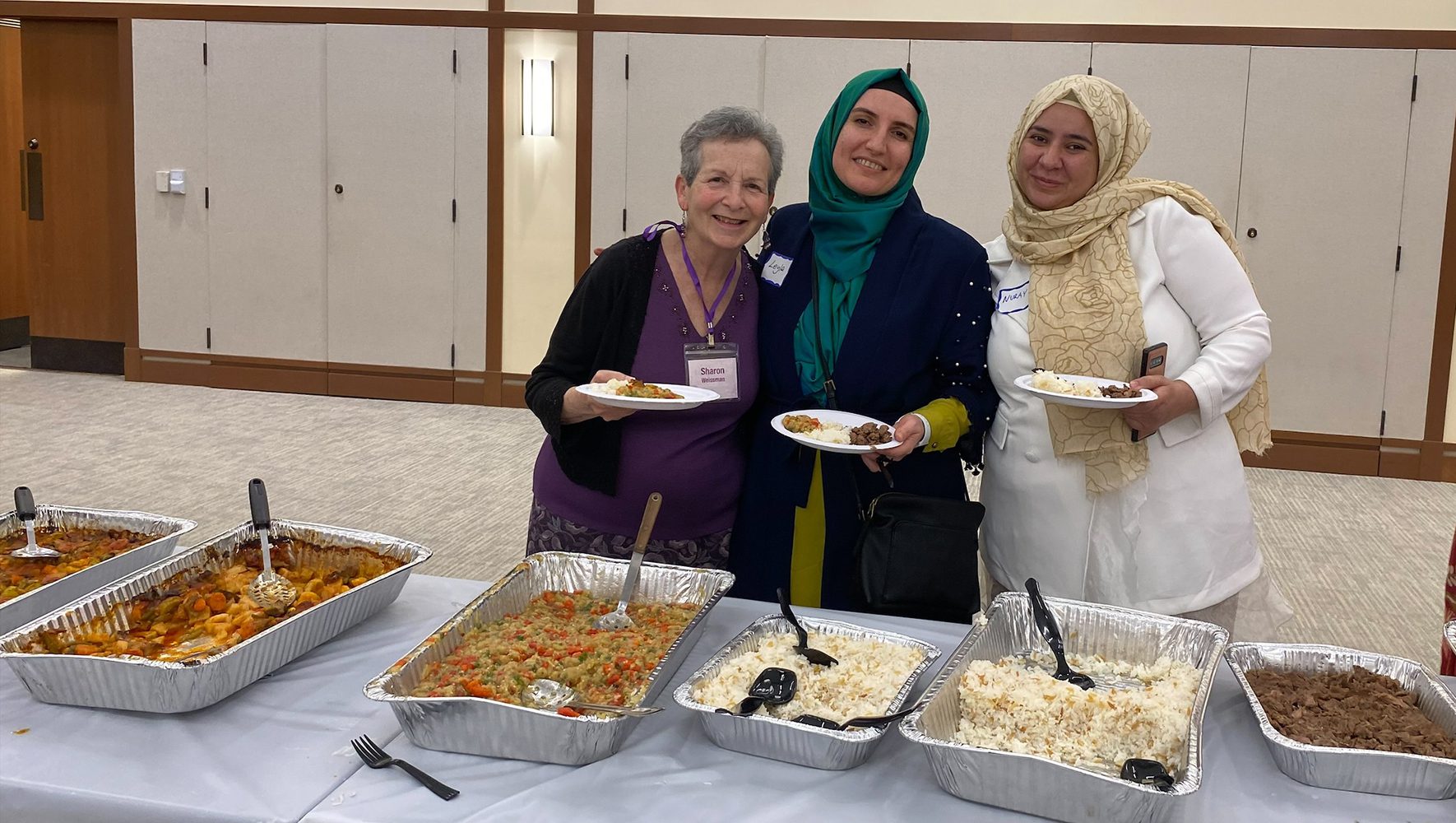
Members of TASOM, Congregation Shaare Emeth, and Parkway UCC join Afghan newcomers to St. Louis for the Iftar Dinner.
(Debbie Bram)
“Coming from a different culture, they may have a lot of question marks about non-Muslims – why Christians are helping us, why Jews are helping us,” said Durhan. “Because they never had in-person, first hand experience. I believe that hosting an Iftar and praying in a synagogue, it means a lot to the families, and shows how welcoming Shaare Emeth and Parkway are, that they open their holy space to us to pray.“
Anisa’s family enjoyed the event immensely. They especially appreciated the opportunity to meet with other Afghan families living in the area. “We felt really good, and like we had not lost our family in Afghanistan,” said Anisa.
Welcome Circles around the country have been working together with the Afghan newcomers in their communities to support their Ramadan observations in ways big and small.
On the same night as Intertwine’s Iftar event, Baltimore Hebrew Congregation’s Welcome Circle held a joint Iftar and Havdalah, inviting the family they are helping to resettle, other Afghan families from the area, and Welcome Circle members and volunteers. After a brief Havdalah ceremony marking the end of the Jewish sabbath, they distributed dates – a food traditionally used to break fast on Ramadan – and the father of the family led an Iftar prayer.
“One of the things that’s traditional at Ramadan – which is also definitely part of Jewish tradition – is to give charity,” said Julie Simon, a member of the BHC Welcome Circle who helped organize the event. “So in honor of the family, the Welcome Circle pooled a little bit of money and we made a donation to HIAS, and to a Muslim family center that’s local, and we announced it at the event.”
Not all ways of showing support are large celebrations, however. Welcome Circles based out of Kehillat Israel Reconstructionist Congregation in Los Angeles, which have helped resettle two Afghan families (one in connection with another congregation, Beth Shir Shalom), have been finding more personal ways to support the families throughout Ramadan.
“Ramadan is a bit intimate; it’s quite personal,” said Rabbi Daniel Sher, who as Kehillat Israel’s assistant rabbi has been deeply involved with both circles. He noted that because the families only arrived two months ago, the Welcome Circles are still in the process of building relationships and learning more about the families’ needs.
“We were really cautious not to over-engage, but to be there for anything they needed,” added Sher. “One of the things that we prioritized was making sure that they know that we know it’s important.”
After working with two different Welcome Circles and families, Sher has learned that there is no one-size-fits-all approach to resettlement. One of the families that Kehillat Israel has resettled, for example, has chosen not to observe Ramadan this year, while the other has.
Various members of the Welcome Circle have been organizing smaller meals so that the family observing Ramadan has had more intimate, but still communal Iftars. One community member in particular has been organizing dinners every Sunday night, usually bringing food to the family’s home but once, memorably, taking everyone to dinner at the Santa Monica Mall.
For Eid, a festival marking the end of Ramadan, both families have been invited to a larger event hosted by a local elementary school – an opportunity to attend a communal celebration with others marking the holiday, independent of the Welcome Circle.
Back in St. Louis, Anisa feels tremendous gratitude, not only for the way that the Welcome Circle has supported her family through Ramadan, but for the way they have made her family feel so at home.
“The [Welcome] Circle, they are really special people,” she said. “In really a short time, everything we needed, we received it. A house, school for my kids, English classes for us, permits, and now we’re learning [to drive]. We think they are family; they give us lots of love.”
*Pseudonym used for client’s protection.
